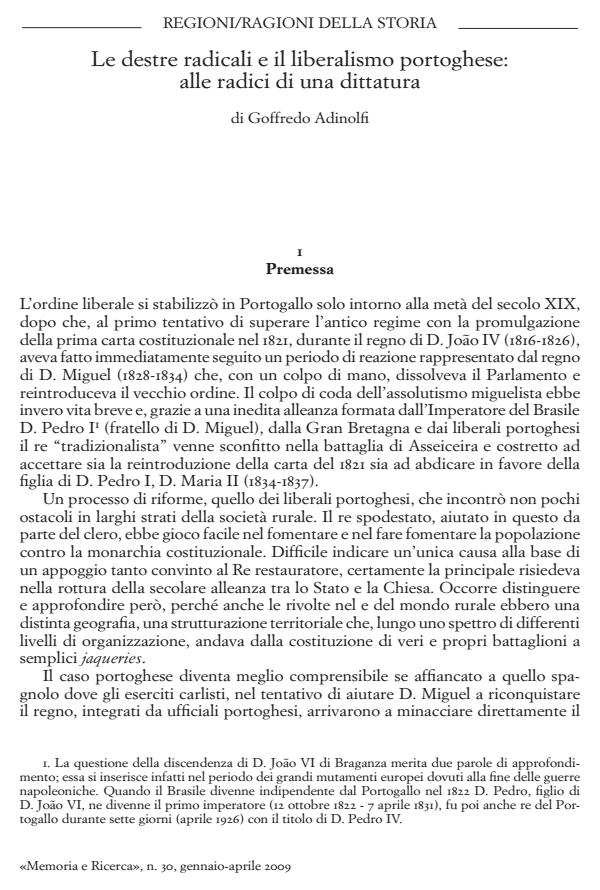Le destre radicali e il liberalismo portoghese: alle radici di una dittatura
Journal title MEMORIA E RICERCA
Author/s Goffredo Adinolfi
Publishing Year 2009 Issue 2009/30 Language Italian
Pages 20 P. 109-128 File size 137 KB
DOI 10.3280/MER2009-030011
DOI is like a bar code for intellectual property: to have more infomation
click here
Below, you can see the article first page
If you want to buy this article in PDF format, you can do it, following the instructions to buy download credits

FrancoAngeli is member of Publishers International Linking Association, Inc (PILA), a not-for-profit association which run the CrossRef service enabling links to and from online scholarly content.
The radicals rights and the Portuguese liberalism: at the roots of a dictatorship - The aim of this article is to analyze the continuing clashes that opposed liberals and absolutists in the Portugal between the nineteenth to the twenty’s century. This was a struggle characterized by constant double-crossings and standstill. Losers, never defeated until the end, were never overcome in the new regime, leaving open lines of fracture and continuing instability between: state-church and republic-monarchy. The Miguelistas, absolutist “resistant” to modernization of the country, a symbol of a deep and archaic country, seems to be missing when, facing the crisis of the late twentieth century, riding the fortunes of the new conservative nationalism, came to a new fortune. Oliveira Salazar was one of the main exponents of this deep Portugal based on the old / new ideology laid the foundation for the establishment of the Estado Novo corporatist and organic state.
Parole chiave: Portogallo, Assolutismo, Oliveira Salazar, Liberalismo, Fascismo, Penisola Iberica Portugal, Absolutism, Oliveira Salazar, Liberalism, Fascism, Iberian peninsula
- From Hitler to Codreanu Carlos Manuel Martins, pp.94 (ISBN:9781003106043)
Goffredo Adinolfi, Le destre radicali e il liberalismo portoghese: alle radici di una dittatura in "MEMORIA E RICERCA " 30/2009, pp 109-128, DOI: 10.3280/MER2009-030011